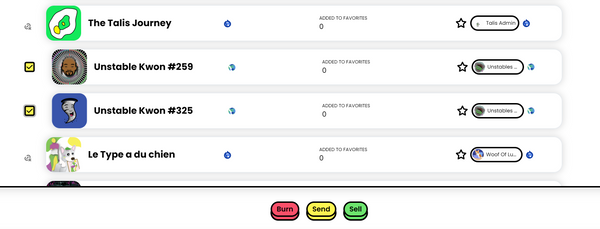Understanding NFTs: A Beginner's Guide
Non-Fungible Tokens (NFTs) have been making headlines in recent years, particularly in the world of art and collectibles. But what exactly are NFTs, and how do they work? In this beginner's guide, we'll provide a brief introduction to NFTs and their potential uses and benefits.
What are NFTs?
At a basic level, NFTs are digital tokens that represent ownership or proof of authenticity for a unique piece of content or asset. These assets could include anything from a piece of art, to a tweet, to a virtual real estate property in a video game.
Unlike other cryptocurrencies such as Bitcoin or Ethereum, which are interchangeable and have no inherent uniqueness, NFTs are designed to be completely unique and one-of-a-kind. They are created and stored on a blockchain, which is a distributed ledger technology that allows for secure and transparent transactions without the need for a centralized intermediary.
How do NFTs work?
NFTs are typically created using smart contracts, which are self-executing contracts with the terms of the agreement between buyer and seller being directly written into lines of code. When a creator or owner of an asset wants to turn it into an NFT, they can create a smart contract that specifies the ownership and distribution terms for the NFT.
Once the NFT is created and added to the blockchain, it can be bought, sold, or traded just like any other asset. Because the ownership of the NFT is recorded on the blockchain, it can be easily verified and tracked throughout its lifetime. This allows for a high degree of transparency and authenticity in the market for NFTs.
What is a smart contract ?
NFT contracts, also known as smart contracts, are a key component of the NFT ecosystem. These contracts are self-executing programs that are stored on a blockchain and automatically enforce the terms of the agreement between the buyer and seller of an NFT. When an NFT is created, a smart contract is typically used to specify the ownership and distribution terms of the NFT. This includes details such as the creator's royalty fee, the number of copies that can be made, and any conditions for transfer or sale. The smart contract also allows for the automatic transfer of ownership of the NFT when it is bought or sold. NFT contracts are important because they provide a secure and transparent framework for NFT transactions, which is crucial given the high value and uniqueness of NFTs.
What are the potential benefits of NFTs?
NFTs have the potential to unlock new opportunities for creators and collectors in a number of ways. For creators, NFTs offer a way to monetize their digital creations and retain ownership and control over their work. They can also benefit from the ability to track and prove the authenticity and ownership of their work, which can help to build their reputation and increase their market value.
For collectors, NFTs offer a way to invest in and own unique and valuable pieces of digital content. Because NFTs are recorded on a blockchain, they offer a high level of security and transparency in the ownership and transaction process. Collectors can also benefit from the potential appreciation in value of certain NFTs over time, as the market for NFTs continues to grow and evolve.
Conclusion
NFTs represent a new and exciting frontier in the world of digital assets and ownership. While there are still many questions and uncertainties around the use and adoption of NFTs, they offer a unique and potentially valuable way to invest in and own digital content. As the market for NFTs continues to develop and expand, it will be interesting to see how they are used and integrated into different industries and applications.





